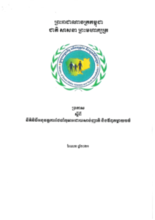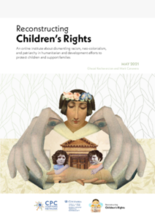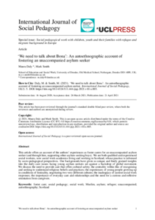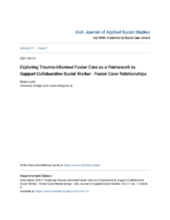Displaying 111 - 120 of 2168
The Goal of the Prakas is to ensure the best interests of the child and protect the basic rights of the child separated from his/her biological parents and receiving kinship or foster care, so that they are safe and thriving in a warm, loving and happy family environment.
The goal of the Reconstructing Children’s Rights Institute is to raise awareness and recognition of how racism, patriarchy, and power permeate the international child rights and child protection field. Building on Conversation #1, this session expands our political imagination by delving deeper into the international children’s rights and child protection space.
This study utilized secondary data from National Survey of Child and Adolescent Well-being (NSCAW II) to examine the experiences of 298 youth and their caregivers.
This article offers an account of the authors’ experiences as foster carers for an unaccompanied asylum seeker (and through him, supporting other asylum-seeking boys).
In the present study, the authors explored the adult-child interactions that took place in 116 families from Spain: 28 long-term non-kin foster families, 34 adoptive families, and a community comparison group made up of 54 families.
This study aimed to better understand the role that Court-Appointed Special Advocates (CASAs) play in the lives of transition-age youth (TAY) by asking participants about the nature of their relationships with their CASAs, and the extent to which their CASAs helped prepare them for independent living.
This paper suggests a new framework, Trauma-informed Foster Care that was developed to reflect the experience of the Irish foster care system, may be helpful to support more collaborative practices between foster carers and social workers in an Irish context.
This article explores the concept of care and the responsibility assumed by ‘states’ when taking children into care.
The current study used survival analysis to investigate whether the type of placement (kin versus non-kin) related to the number of placement disruptions over time.
The purpose of this study was to provide a population-based analysis of child protection system (CPS) involvement among children and adolescents who died by suicide.




